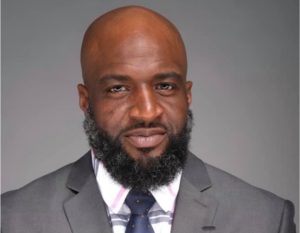Yesterday’s conference at Princeton University,“Crisis and Hope: Transforming America’s Urban Schools,” featured a star-studded roster of speakers: Ed. Comm. Bret Schundler, Martin Perez (President of the Latino Leadership Alliance of NJ), Rev. Reginald Jackson (Black Ministers Council of NJ), Dr. Marcus Winters of The Manhattan Institute, Dana Rone, Joe Williams (Democrats for Education Reform), Dr. Marc Porter Magee (ConnCan), Lisa Graham Keegan (Former Superintendent of the State of Arizona), Ryan Hill (Founder of TEAM Charter Schools), Patricia Bombelyn (Co-Counsel for the plaintiffs in Crawford v. Davy). The conference was sponsored by Excellent Education for Everyone, Citizens for Successful Schools, and Princeton Students for Education Reform. Derrell Bradford and Peter Denton of E3 and Dr. Therman Evans, former president of the D.C. Board of Education, chaired the panels. There was a brief explosive appearance by Dr. Cornel West.
Major themes: the ethics of urban school reform (Comm. Schundler repeatedly limned school choice as an issue of “social justice”); NJ’s success at financial parity but abject failure at racial integration; and accountability to parents and children instead of the current system which assigns accountability to legislators. The audience in the Frist Center at Princeton was vocal, well-informed, inquisitive, and largely Democratic, a pointed illustration of the ways in which urban school reform is a post-partisan movement.
We’ll get into more analysis later. For now, here’s some highlights:
Comm. Schundler: we are constitutionally obliged to “provide” a free public education to all students. However, we fail to “maintain it,” our other constitutional obligation. “If we maintain a system controlled by people at the top [i.e., the Legislature], you’ll only serve the people at the top.” [As Peter Denton said later in the day, “follow the money.”]
“We are abrogating our responsibility.” The failure is not that of “school districts or superintendents or NJEA. The failure is the state government.”
Albert Shanker said, “When school children start paying union dues, that ‘s when I’ll start representing the interests of school children,” cited Schundler adding, “it’s time for us in state government to know whom we’re working for.”
Martin Perez: Education is “the most important civil right issue of our age.”
“NJ has some of the best public school in the United States. The problem is that Black and Hispanic kids are not in those schools.”
“Those who open schools close jail cells.”
Rev. Jackson: “The political leadership in the State has little regard for what is happening to students in urban centers. It is indifferent [to the students] because it believes that there are no consequences.”
Patricia Bombelyn: NJ’s system of suburban vs. urban schools is a “unique brand of American apartheid.”
Lisa Graham Keegan: “We have gutted” the teaching profession. “It’s a wholly-owned subsidiary of the teachers’ unions” as are education schools, which draw from students with the lowest scores on SAT’s. 99% of teachers get a “A” on their teaching evaluations.
Ryan Hill, Head of KIPP schools in Newark: “Teachers are the reason we’re successful.” 90% of students who started with us in 8th grade got into college. We have 4,000 kids on our waiting list, which is 10% of the school population in Newark. The biggest hold-up to charter school expansion in inner cities is facility space; Newark is full of empty schools, yet KIPP is raising $25 million to build a new building. “We need to acknowledge that charter schools have the same right to space as district schools.”


